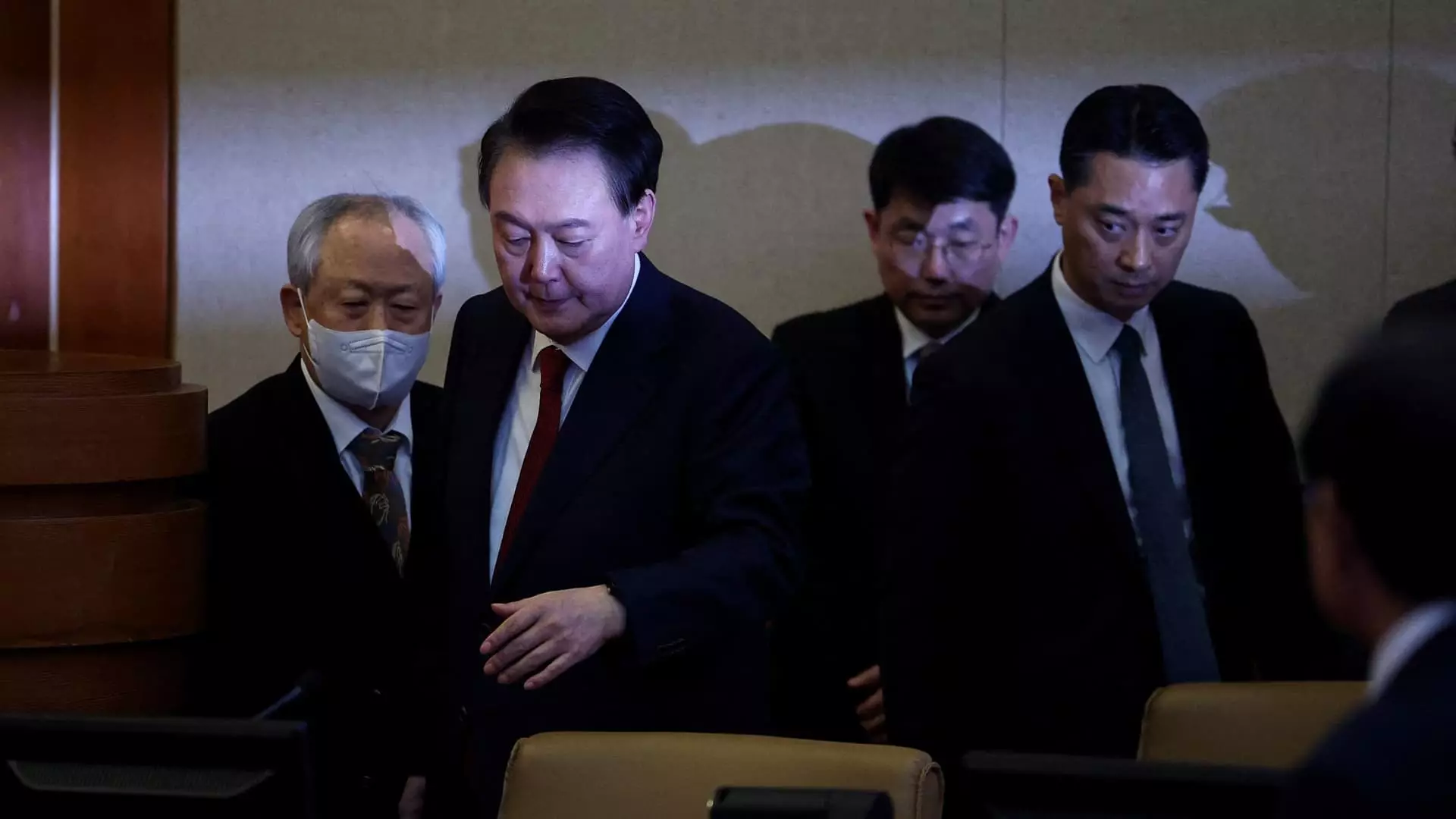In a move that has shaken the very foundations of the South Korean government, the Constitutional Court’s unanimous decision to uphold the impeachment of President Yoon Suk Yeol marks a defining moment in contemporary politics. This is not merely an administrative maneuver; it is a resounding indictment of an administration that sought to manipulate laws and instill fear among its citizens. The court’s ruling serves as a powerful reminder that democracy is not simply about winning elections; it’s about accountability, adherence to the rule of law, and the protection of civil liberties.
The Rise and Fall of Yoon Suk Yeol
Yoon’s presidency was marked by an alarming show of force that included a declaration of martial law—a first in over four decades for South Korea. His justifications, hinging on threats from “North Korean communist forces” and “anti-state elements,” appear, in retrospect, to have been an exaggerated narrative concocted to anchor his presidency in a cloud of crisis. Such actions undermine trust in the government, portraying it as an oppressive entity rather than a liberating one. Invoking martial law was not just an overreach; it was a calculated gamble that risked plunging the nation back into the dark days of authoritarian rule.
The fact that the National Assembly quickly voted down his decree is particularly telling. It shows that, when faced with the prospect of martial law, legislators acted swiftly to protect democratic institutions from encroachment. The subsequent impeachment was not simply a political maneuver but a necessary course correction for a nation that had struggled so hard to maintain its democratic integrity.
Market Reactions and Implications
Yoon’s ousting has had immediate ramifications across various sectors, evident in the fluctuations of the Kospi and the Kosdaq, the two major stock indices. The initial slip of the Kospi by 0.59% can be attributed to uncertainty and the volatility of the political climate. However, the small-cap Kosdaq’s modest rise of 0.74% indicates a resilience in certain sectors of the economy, showcasing that investors are keenly aware of the potential for a shift toward more stable governance. Furthermore, the strengthening of the South Korean won by approximately 1% offers a glimmer of hope that the economic landscape might stabilize, provided that the interim leadership steps in to mend the fractures left by Yoon’s administration.
The Road Ahead for South Korea
Looking ahead, the reinstatement of Prime Minister Han Duck-soo as acting president is not merely a stopgap measure—it is an opportunity to redirect the narrative of governance in South Korea. With a 60-day countdown ticking towards a new presidential election, the urgency to lift the veil of division created by Yoon’s regime is palpably felt. The political landscape is ripe for new ideas, new leadership, and a re-engagement with the electorate that emphasizes collaboration over authoritarianism. In this crucial juncture, the South Korean populace is called upon not just to vote, but to engage in thoughtful deliberation—ensuring that the errors of the past are not repeated in the next chapter of its democracy.
This moment, this upheaval, could signal a renaissance for a governance model grounded in transparency, accountability, and respect for the rule of law, moving South Korea firmly back on its democratic path.


Leave a Reply